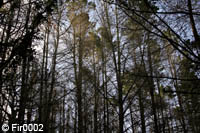Bringing forest management to central Africa
Trees are both reservoirs for oxygen and protectors of natural habitats, and therefore biodiversity. A programme operated by CIRAD, the French Agricultural Research Centre for International Development, has extended a forest management scheme operating in the Central African Republic to cover 90 per cent of managed forests. In the Central African Republic, the government is responsible for funding forestry management schemes, while private companies carry out the work. In neighbouring countries, the government relies upon industrialists to fund and manage their own schemes. The government of the Central African Republic actively sought ways to fulfil its commitments to the 1999 Yaounde summit, where signatories designated forests as resources that should be preserved for the good of their populations. It has used PARPAF, an organisation supervised by CIRAD to deal with the technicalities of forest management, since 2000. The number of forests now dealt with by PARPAF has increased from five per cent then, to a commitment to 90 per cent of concessions. The PARPAF approach is thorough and has a clear focus on preserving biodiversity. PARPAF representatives make an audit of the wooded area, beginning with the trees themselves, before moving on to wildlife. This gives PARPAF the 'ecological potential' of the wooded area, so that a quick calculation gives the quantity of forest that can be sustainably felled. The companies operating in the area are provided with maps and tables, detailing which areas can be logged, but more importantly, which areas cannot be logged. The companies operating on the land sign a contract with the state, and fund 30 per cent of the cost of management, and the equipment companies use is closely monitored to ensure no extra logging takes place. The scheme has proved a success so far, initially extended by two years to 2006. The next phase involves the long-term monitoring and management of the forests over the coming 30 years. PARPAF have been thorough, and in doing so have trained a new generation of workers in sustainable forestry management. This has left the Central African Republic with a novel legacy in the region - sustainably managed forests for the benefit of future generations.
Countries
Central African Republic, France



